Understanding Research
Are you a student interested in getting involved in research? Or an instructor who'd like some help mentoring your research students? These videos are for you. Each video presents a short overview of one component of research in science, with personal examples and experiences from Anthony Carpi, an environmental chemist, and Anne Egger, a geoscientist. Anthony and Anne walk you through how to get started in research, work with your mentor, and much more. You can watch them in order or pick and choose. Get started by watching the introduction that is tight for you!
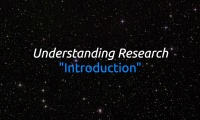
Episode 1a: Introduction
In this video, Anne and Anthony introduce themselves, their own research areas, and the students that they have mentored in research. They give an overview of the series of videos about understanding research, and why you might want to watch them and get involved in research yourself.
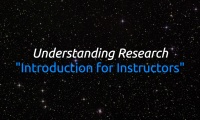
Episode 1b: Introduction (for instructors)
In this video, Anne and Anthony introduce themselves, their own research areas, and their experience mentoring students in research and directing research programs. They describe how you might use these videos to supplement your own mentoring and teaching, and give an overview of the topics covered.

Episode 2: What is Research?
In this video, Anne defines research, gives a variety of examples of how individuals conduct research in a variety of disciplines, and describes the skills that research involves. You’ll also hear from several students and university faculty about the type of research they do.
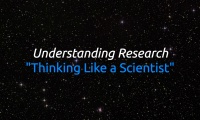
Episode 3: Thinking like a Scientist
In this video, Anthony describes a commonality among all scientists: asking questions and addressing those questions using critical thinking.
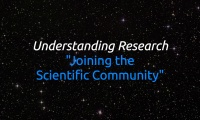
Episode 4: Joining the Scientific Community
In this video, Anne describes the set of values, methods, and approaches that unite scientists in a community, and how that community interacts to support individuals and the progress of science. You’ll hear from another scientist about how she benefits form her interactions with her scientific community.
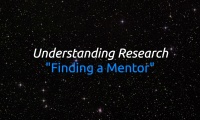
Episode 5: Finding a Mentor
In this video, you’ll hear from several students about how they interact with their research mentors, and the benefits they’ve received from these relationships. You’ll also hear from research mentors about what they enjoy about mentoring and how they approach it. Then Anne talks about how to find and work with a mentor.
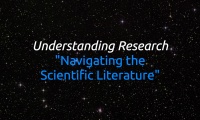
Episode 6a: Navigating the Scientific Literature
In this video, Anthony describes why and how to use the scientific literature in research, including using databases like Google Scholar and Web of Science and refining searches to find what you really need. He also emphasizes how mentors and librarians can help you as you explore the literature.
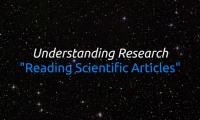
Episode 6b: Reading Scientific Articles
In this video, Anthony describes how to read and evaluate scientific articles. He discusses the sections of articles—the introduction, methods, results, and discussion—and what you can expect to find in each of those sections. He also shares strategies for reading scientific articles and discussing them with others.
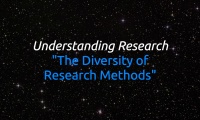
Episode 7: The Diversity of Research Methods
In this video, you’ll hear from several students about their research, ranging from toxicology to anti-viral drugs. Then, Anthony introduces different types of research methods, like observational and experimental studies, and summarizes the commonalities of all of these approaches: a systematic approach to data collection and analysis.
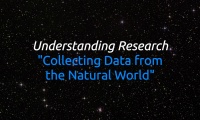
Episode 8: Collecting Data from the Natural World
In this video, Anne explains some of her own research about earthquakes, and how it involves making detailed observations of the natural world. She describes many types of scientists that use systematic, detailed observations as data for their analyses and interpretations: astronomers, climate scientists, ecologists, and many more. In addition, you’ll hear about citizen science projects, freely available datasets, and how observations can be useful in generating new research questions.
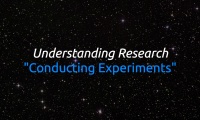
Episode 9: Conducting Experiments
In this video, Anthony explains some of his own research about mercury in soils, and how he was involved in an experiment to determine the impact of forest burning on mercury pollution in the soil and in the air. He describes the key characteristics of scientific experiments, including the manipulation of a single variable at a time to compare one situation to another. He talks about having both methodological controls and experimental controls, and the many types of scientists that use these controlled experimental methods.
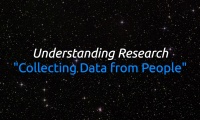
Episode 10: Collecting Data from People
In this video, Anne describes ethical and systematic ways to collect data from people, starting with an example that most students are familiar with: surveys and course evaluations. She explains how scientists collect data from people to address questions of risk perception, epidemiology, preparedness for hazards, and many other questions, and how the wording of the questions to make sure you get the answers you are expecting takes time and testing. In addition, she explains how research involving people must get approved by a human subjects research board that assures that the methods used are ethical.
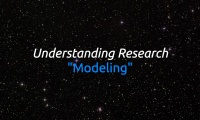
Episode 11: Modeling
In this video, Anne explains how she uses a mathematical model in her own research about earthquakes. She describes how scientists use computer models can be used to make predictions about ground shaking in earthquakes, and physical models to conduct experiments. In all cases, she notes the importance of understanding the simplifications and assumptions you are making in the models.
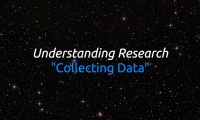
Episode 12: Collecting Data
In this video, Anthony defines data and gives a wide variety of examples. He describes that data are collected for a reason, and must be systematic and replicable. Using his own research in the Amazon rainforest as an example, he explains what these terms mean, how and why scientists detail their methods for data collection, and how to organize and archive data to make sure they are usable into the future.
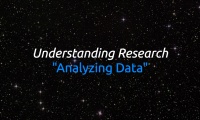
Episode 13: Analyzing Data
In this video, Anthony describes common practices in analyzing data, including graphing quantitative data. He explains how he analyzed his own data of mercury concentrations in order to extract trends and comparisons in order to address his research question. In addition, he introduces the concepts of uncertainty and statistical analyses and how they can help in data analysis.
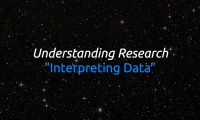
Episode 14: Interpreting Data
In this video, Anthony describes how he moved from data analysis to interpretation in his own research on mercury pollution in the Amazon rainforest. He explains how scientists use their background knowledge, experience, and the context of the work to bear in interpreting data, and that scientists can interpret the same data differently.
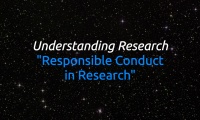
Episode 15: Responsible Conduct in Research
In this video, Anne explains that scientists have ethical standards that guide their work, including being truthful and honest in collecting and reporting data, and acknowledging the work of others. She describes how she applies these ethical principles in her own research in geologic mapping, as well the requirements for scientists who study animals and humans—and what happens in the rare breaches of ethical standards (and how to avoid these breaches).
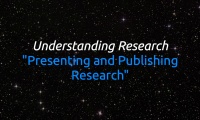
Episode 16: Presenting and Publishing Research
In this video, Anne describes what scientific meetings are like, and why she goes to them. You’ll hear a little bit about the history of scientific meetings, the continuum of scientific presentations, and then hear from students about their experiences making presentations and how they gained skills and confidence.
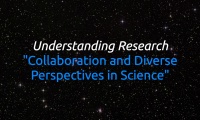
Episode 17: Collaboration and Diverse Perspectives in Science
In this video, Anthony describes how his collaborations with scientists from a variety of backgrounds influenced and improved his research in the Amazon rainforest. You’ll hear about how the diverse perspectives of scientists from different disciplines, cultures, personal experiences, and interests can work together to benefit scientific understanding.
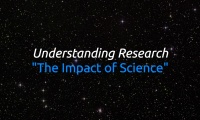
Episode 18: The Impact of Science
In this video, Anne describes the many ways in which scientific research impacts our daily lives. Then you’ll hear from both Anne and Anthony about how they communicated their research broadly, and the ways in which the results of their work could inform decisions made by local communities.
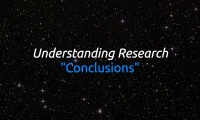
Episode 19: Conclusions
In this short video, Anthony and Anne suggest next steps for getting involved in scientific research and for learning more about the research process.
Sign in or register
For an ad-free experience and access the Visionlearning Classroom, sign in or register.
